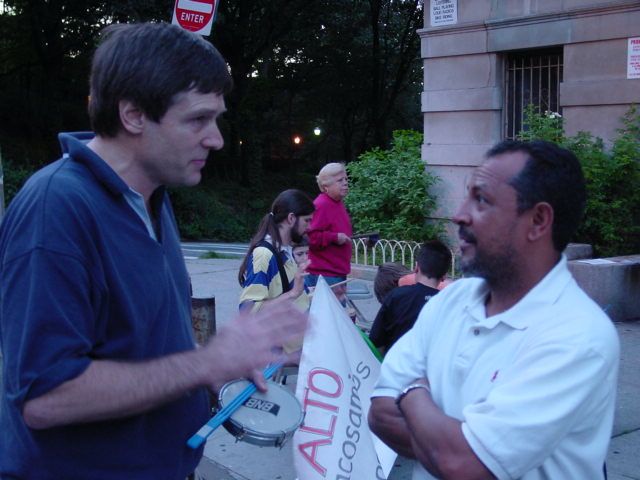the Israeli woman posts a photograph of a child
A Palestinian child. Children have faces.
Underneath she writes in Hebrew —
…………………………..(name) was alive. (Name) is dead now.
…………………………..Two years old. A month old. Six years old.
Family
My 115th Dream & An American Family
WTF? Waking with an aching toe…left foot or right? The one I broke in the Bronx? Has the cold cut to the bone? Hope so. Huh? Well, IF it’s just this I.C.E. age, sleepy/creepy me will hibernate…
Then again, I might be at the mercy (all over again) of my own damn head. I’ve been getting worked over lately by a long manuscript. Upshot of a bad habit—call it “diligent indolence”? Years ago, I found I could cheat when I got stuck on an essay. Instead of hard-slogging through, if I’d been truly working—I could fade-to-bed and my brain would dream a solution to whatever was holding me back. All I had to do was trace the meander of the last dream I had after a natural wake-up. With piece-work, my mind wakes me up with the Answer after four or five hours. Lately, though, things done changed. I’ve been chasing a big bear of a book (?) and once I’m hunting, my head only lets me sleep for a couple hours and KEEPS waking me on the regular until I think I’ve taken my last shot.
American X-mas Party
Shane and I used to finger each other. Don’t worry mom, this isn’t me coming out. Fingering is a bit dramatic. It was just pre-pubescent exploring. I remember one time when we had our pants off, figuring out each other’s, in Shane’s room—my mom and Shane’s mom knocked on the door. We hadn’t heard them make their way from the living room. Shane and I rushed to button up. My mom didn’t notice the way my pants hung loosely from my hips.
I went to see Shane for the first time in ten years. His mom, an ex-police detective who had moved out to California, was hosting a Christmas party on her return to New York. I could discern which retro-fitted Harlem apartment building was Shane’s.
Bob Dylan: On A Couch & Fifty Cents A Day
Peter McKenzie’s parents welcomed Bob Dylan into their life and New York City apartment where he slept on the couch for a couple seasons in 1961. Mac and Eve McKenzie helped introduce Dylan to Greenwich Village’s politics of culture. Peter was in high school (on his way to Harvard) when Dylan came to stay for a stretch. He hero-worshipped Dylan who acted big brotherly toward him.
Fast Pitch
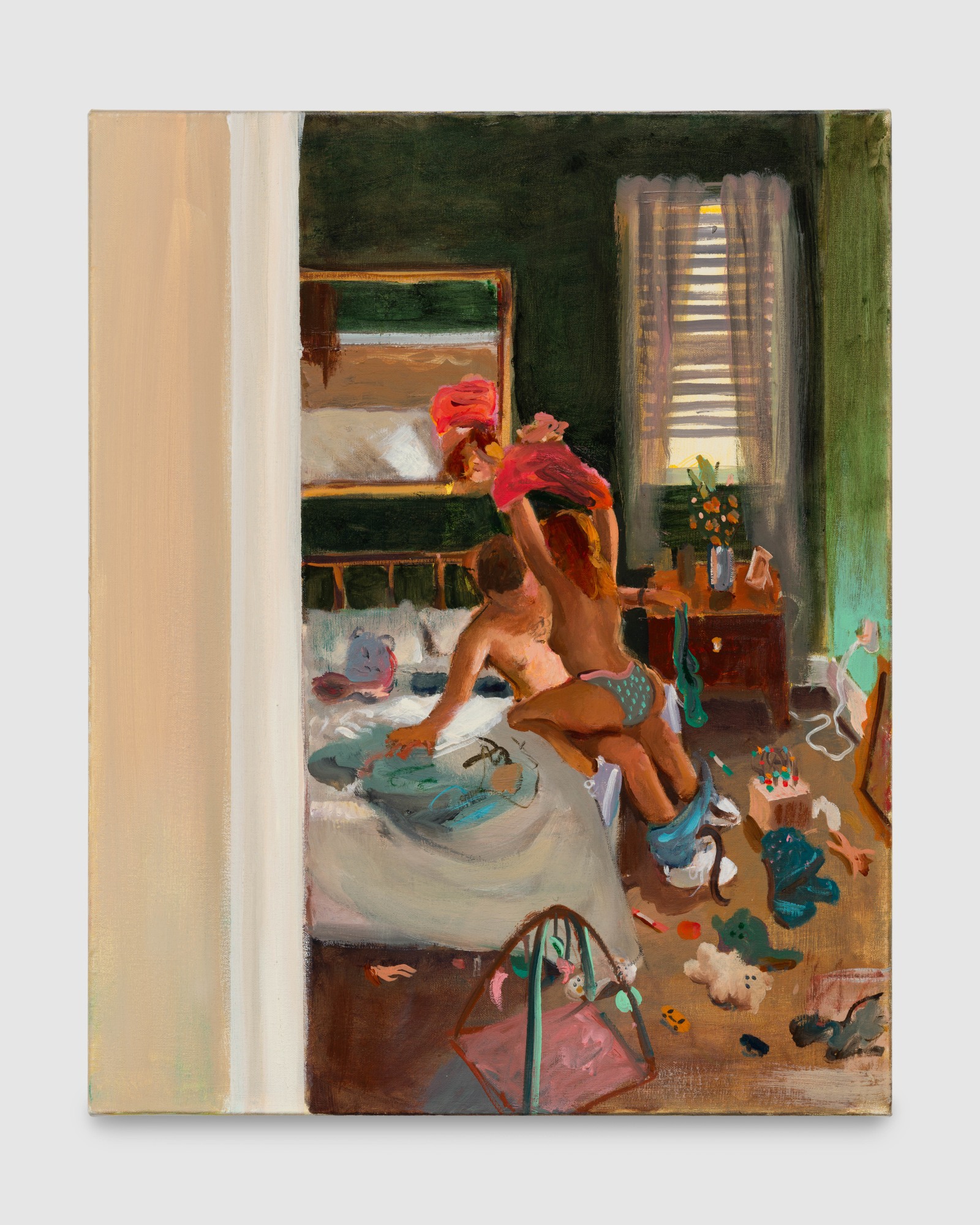
“Reaction Time”, 2024, oil on linen, 20 x 16 inches.
A ballsy one from “Quickies”—Larry Madrigal’s new solo exhibition at Nicodim Gallery in Los Angeles.
The Uses of the Rothermans
Originally published in “New Mexico Quarterly” in 1953.
I was eleven when my uncle closed with the Rothermans. This was 1933, in a village on the south shore of Long Island that is now pure metropolis and that was then becoming a suburb. My uncle’s family and my sister and I (our parents were killed in an auto accident in the mid-twenties) had moved shortly before from a great, white-pillared, Georgian house that faced the new golf course. The vicissitudes of a stock called Vanadium were the cause of the move: the house, the Lincolns, Robb (the former dumptruck driver who chauffeured them), Anna and Maria, illiterate German housemaids in their teens, help that had been pressed a year before from “The Daisy Huggub Agency” in Hempstead, and some other ill-chosen earnests of marginal gain — all were let go at once. The Georgian house, a product of my uncle’s massive pride, was sold to the Jewish owner of a chain of retail jewelry stores.
The Morning Crowd
(an homage to/adaptation of/improvisation upon Lydia Davis’s “Old Men Around Town”)
The customer who had been coming to Espresso Bongo the longest had been a magician. He had white hair and blue eyes which were alert and bright. He arrived when the café opened and sat at a corner table opposite the rest room and told people if it was occupied and, if they had never known or had but had forgotten the lock’s combination, he clicked the remote he palmed and opened it. If a small child arrived, he bowed, introduced himself to its parent and, with their permission, pulled a quarter from the child’s ear.
Each rainy season, he left for San Miguel de Allende. This spring he did not return. He has an ex-wife and adult son but no one at the café knew how to reach them. His usual seat has been taken by a 95-year-old, former Pilates instructor, who can still raise one foot above her head while standing on the other foot but can not keep from offering books she has brought from home to people who declined them the previous day or, sometimes, the previous hour.
London Calling (Or, Another Walker in the City)
Walking north along Whitehall in the direction of Trafalgar Square, I felt an odd stirring as we passed the memorials to Britain’s bygone military heroes. I didn’t really know who most of the statues represented, many of them seemed to be related to the Great Wars of the twentieth century, but it didn’t matter. Or maybe it did – the First and Second World Wars seem to loom over this country in a way that is much more present, much more remembered, than in America.
Turn, Turn, Turn
I listened to the Trump-Biden debate with some kind of horror on BART. I’m not a fan of Biden but still, the shock of hearing him stumble through the event overrode any political disagreements. I felt a deep concern and pity for Biden (and all of us). What was it that was happening here? I left when they started talking about golf. The friend who I was staying with that night got a text from another friend about the debate. It simply said “haha, we’re all going to die.”
On the Road with R.H. Blyth (II)
“Autumn arrives in early morning, but spring at the close of a winter day…” Elizabeth Bowen’s apercu is worthy of the seasonal sense that suffuses haiku, though it didn’t really work for me this year. Winter went away yet I kept waiting on the soft evening with Change in the air. At least I didn’t miss this…

Goodbye, Bill Walton
I wrote plenty about Bill Walton when he was alive (alive as you and me) but, damn, even more so. I don’t want to let him go. Ever!
In our country’s battle to preserve what soul it had, there was no greater weapon and stronger voice than that of antic Bill Walton. He rarely dribbled, and never shut up. He truly mattered.
Last Hour of Every Angel
I
…If you were a goddess, Xylea said, what goddess would you be? She paused to think for a second. If you were a goddess, you’d be the goddess of beauty and illusion…
…That haunted me, for some reason. The reason was that my life had, without my noticing, been drained of reality, or the pretense to reality. I was a celibate, anhedonic whore (let’s say a depressed whore). Sex itself meant nothing to me, having become mere performance, empty enchantment. I fell in love with ghosts, or people who soon became ghosts, whose names I no longer remembered shortly afterwards.
Three Lessons From Mama
Over the years, I shared various ways in which my parents intentionally worked to develop me into a constructive person. Often, because my mother was the primary disciplinarian, she has gotten the short end of the stick because most of my stories about her involve being the enforcer of the law. Yet, Claudette was the drill sergeant who was determined to prepare her child for a war in which I was armed to wrestle with the ghostly demons who desired to manifest their supremacy in flesh and blood.
Ghosts of Christmas past: Aspen, 1967
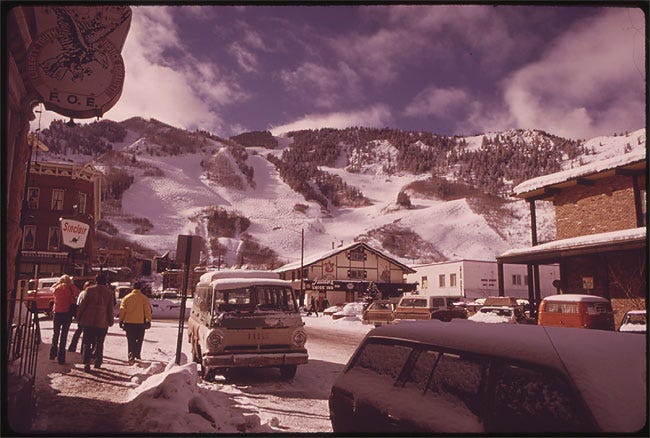
Christmas vacation when you were a cadet at West Point was all about how you got there. You could fly space available in uniform for half price, but even that was too much if you had to fly halfway across the country, so it was pretty common for cadets to look for “hops,” a free ride on an Air Force cargo plane that was going your way.
A friend of mine and fellow ski patrolman at West Point, we’ll call him Alex, discovered that his father’s former roommate at West Point had retired from the Army as a Colonel and took a job as the manager and groundskeeper at the Aspen School of Music. The main hall at the school, about 200 feet long and 20 feet wide was used for chamber music concerts in the summer and had two offices at one end of the building with convertible sofas. The School of Music was closed, and they were ours over Christmas, the Colonel said, if we could get out there. A lift ticket that year was $6.50. We could manage that. We found an Air Force hop and rode in some spare web-seats on a C-141 loaded with cargo headed for McConnell Air Force Base near Wichita.
The terrible option
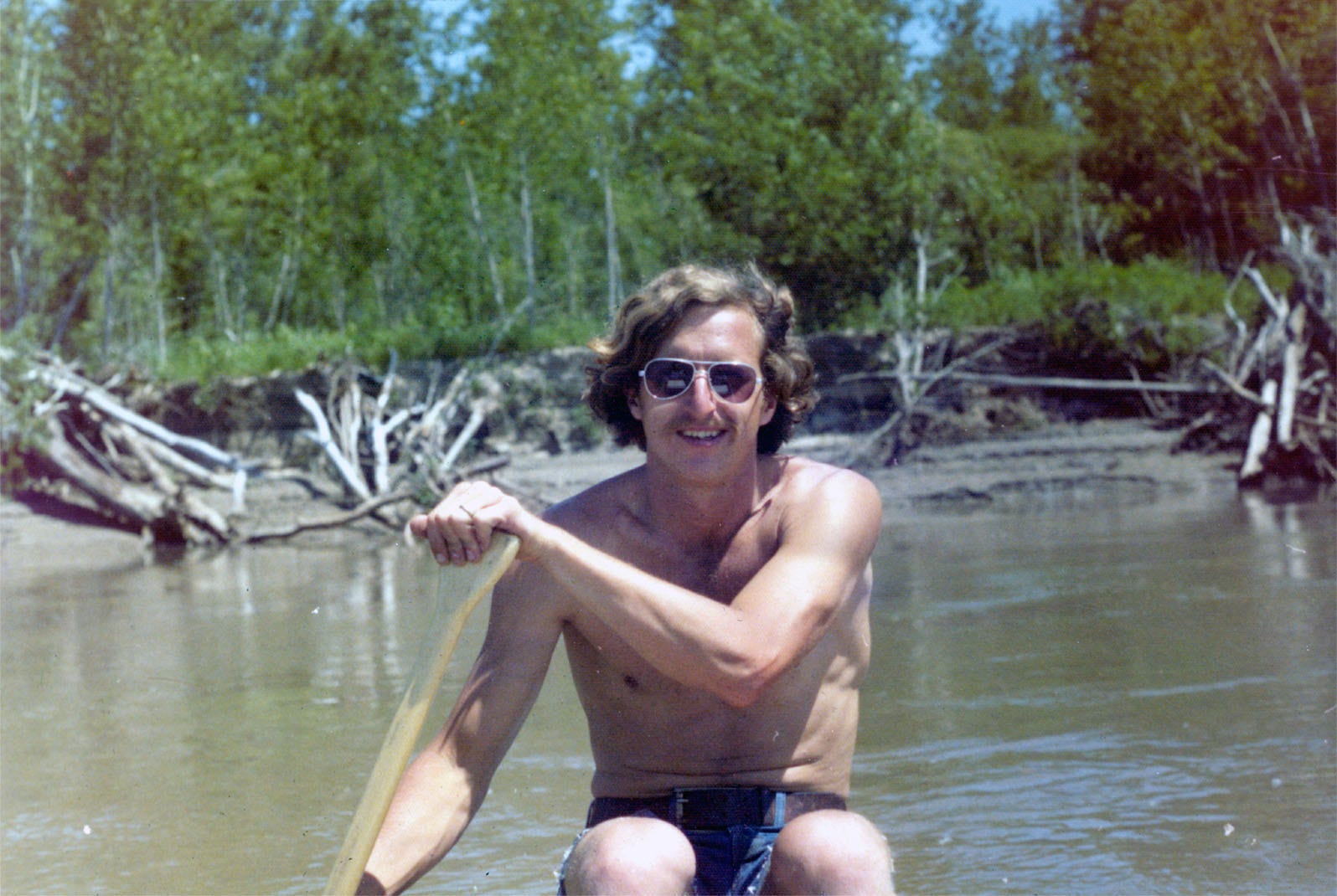
My brother Frank
If you’ve known someone who died by their own hand, you walk around for the rest of your life with a question mark so real, you can see it with your eyes and feel it on your skin. Why? What drove them to do it? Even though people commit suicide all the time, no one wants to confront that darkness or our resentment that they have left us with the terrible knowledge that death is not just a reality, it’s an option.
I’ve known several people who have taken their own lives, but the two I miss most dearly are my brother, Frank, and my friend the folksinger, Phil Ochs. They were very different people, and their suicides were very different.
A Great Day in West Harlem
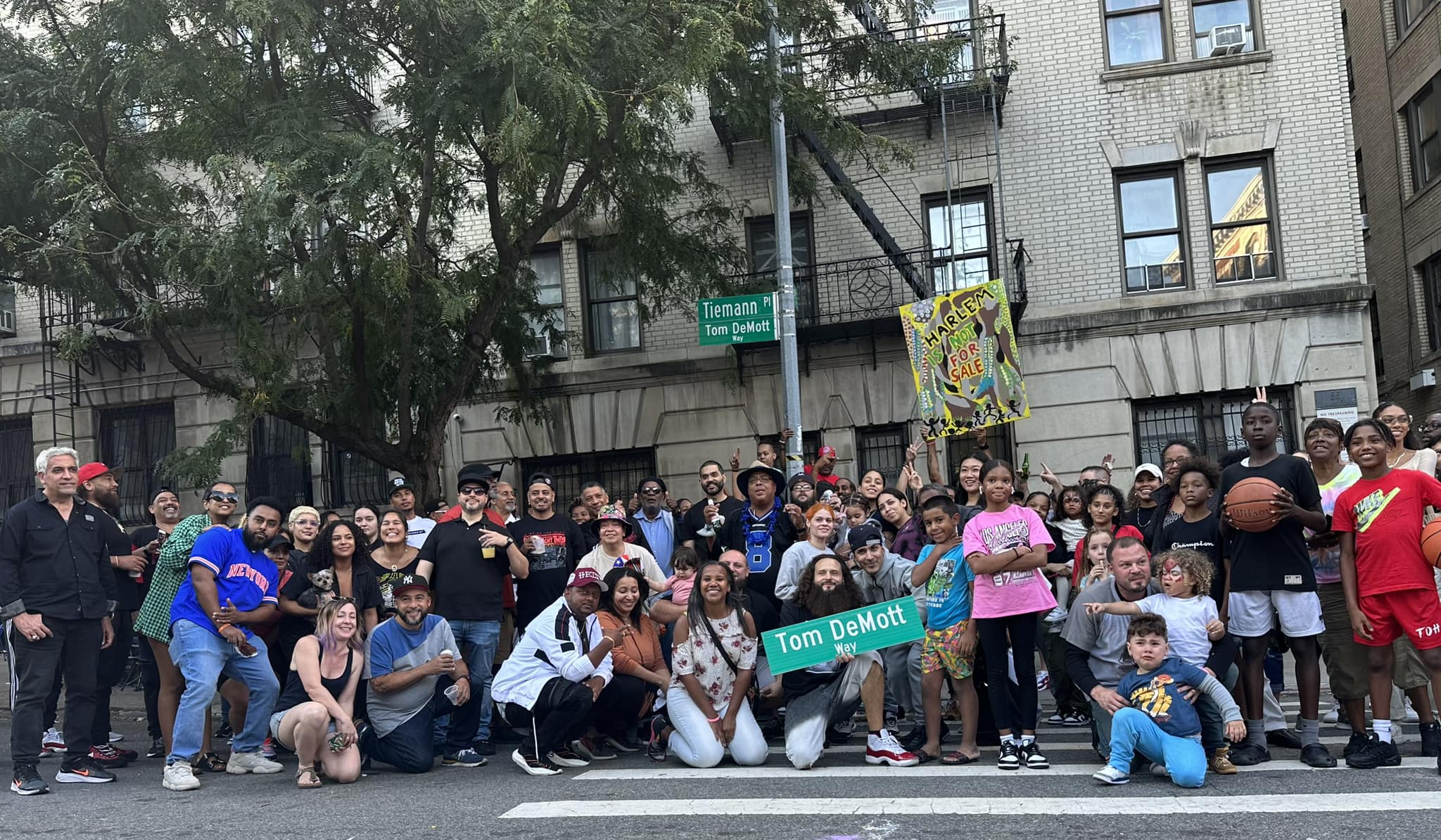
Many of you were here for this event (and many actually organized it with true Tiemann tenacity), and some weren’t here but were in the utter vanguard of this ferocious tenants’ rights organization. We and you all were saluted on Saturday, on the event of the 35th annual West Harlem Coalition Anti-Gentrification Street Festival, with the unveiling of the street sign co-naming Tiemann Place as “Tom DeMott Way”!
Fiesta
For a long time I used to get up early on the day of the Annual Anti-Gentrification Street Festival. I’d join the crew that set up traffic barricades on Claremont, Broadway and Riverside and lug tables from International House—the dorm for foreign students on Claremont—down to Tiemann Place. I’ve tended to flake off lately though. My nephew Jamie and his gen seemed to have taken on the job after my brother Tom died—retiring elders like me. Yet this September I’d been more involved in prep since we’d arranged with our Councilman’s office and the DOT to schedule the “unveiling” of an official sign co-naming Tiemann Place “Tom DeMott Way” on Festival day.
Thanks to a prompt I could not refuse from an Irishwoman, Anah Klate, on September 16th I was up and out on the street by mid-morn (as grey went blue).
Emily Rose

This photo graces the cover of Bruce Jackson’s new book of essays, Ephemera 1995-2022. Don’t be fooled by the self-diminishing title. Jackson’s dog earned her paper monument…
Roots & Stem
Sparing you the seconds of time speeding by as the Pentagon’s unauditable bloated budget speeds us toward dead oceans, dead corals and a million species lost…
